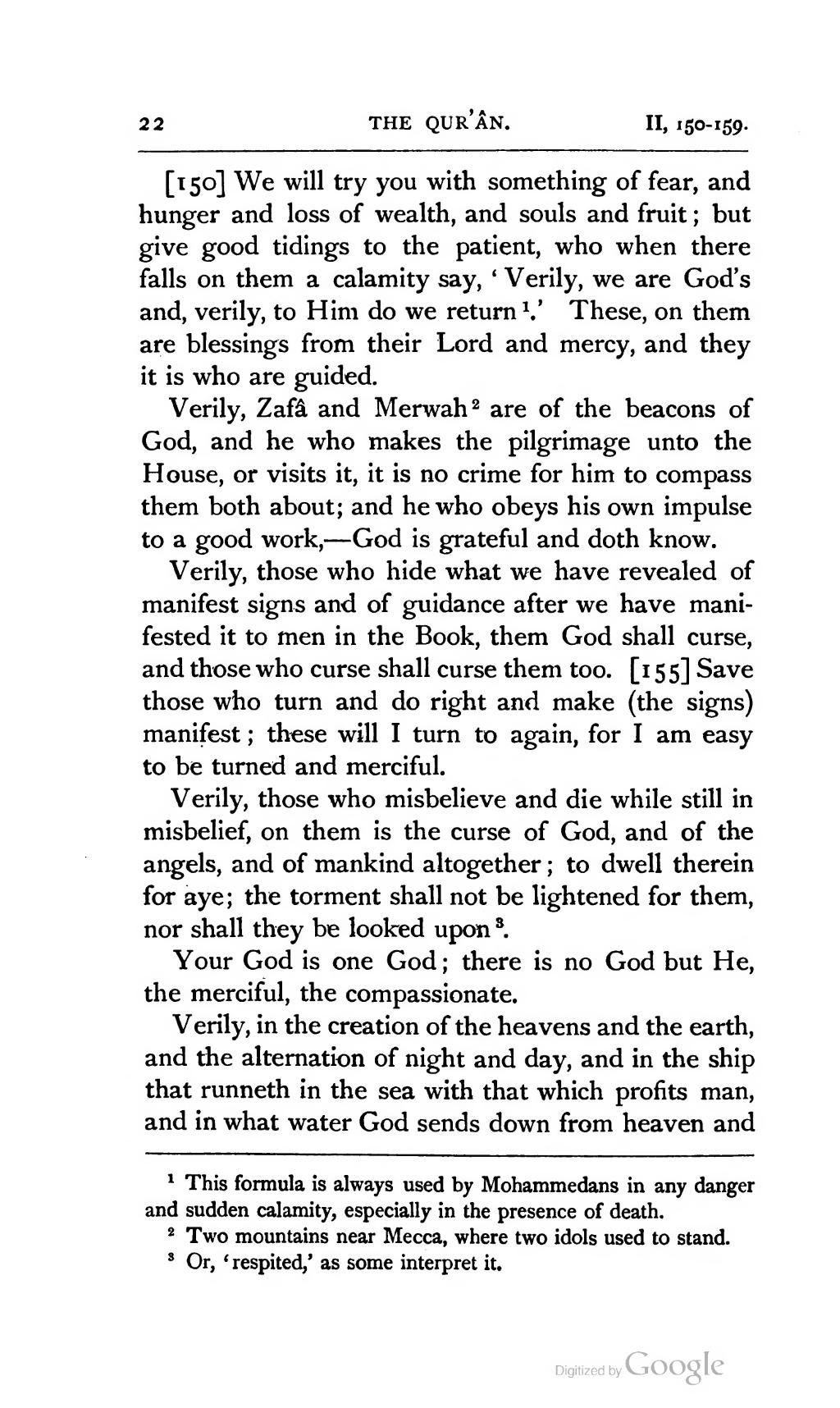150 We will try you with something of fear, and hunger and loss of wealth, and souls and fruit ; but give good tidings to the patient, who when there falls on them a calamity say, ‘ Verily, we are God’s and, verily, to Him do we return[1].’ These, on them are blessings from their Lord and mercy, and they it is who are guided.
Verily, Zafâ and Merwah[2] are of the beacons of God, and he who makes the pilgrimage unto the House, or visits it, it is no crime for him to compass them both about; and he who obeys his own impulse to a good work, — God is grateful and doth know.
Verily, those who hide what we have revealed of manifest signs and of guidance after we have manifested it to men in the Book, them God shall curse, and those who curse shall curse them too. 155 Save those who turn and do right and make (the signs) manifest ; these will I turn to again, for I am easy to be turned and merciful.
Verily, those who misbelieve and die while still in misbelief, on them is the curse of God, and of the angels, and of mankind altogether ; to dwell therein for aye; the torment shall not be lightened for them, nor shall they be looked upon[3].
Your God is one God ; there is no God but He, the merciful, the compassionate.
Verily, in the creation of the heavens and the earth, and the alternation of night and day, and in the ship that runneth in the sea with that which profits man, and in what water God sends down from heaven and
